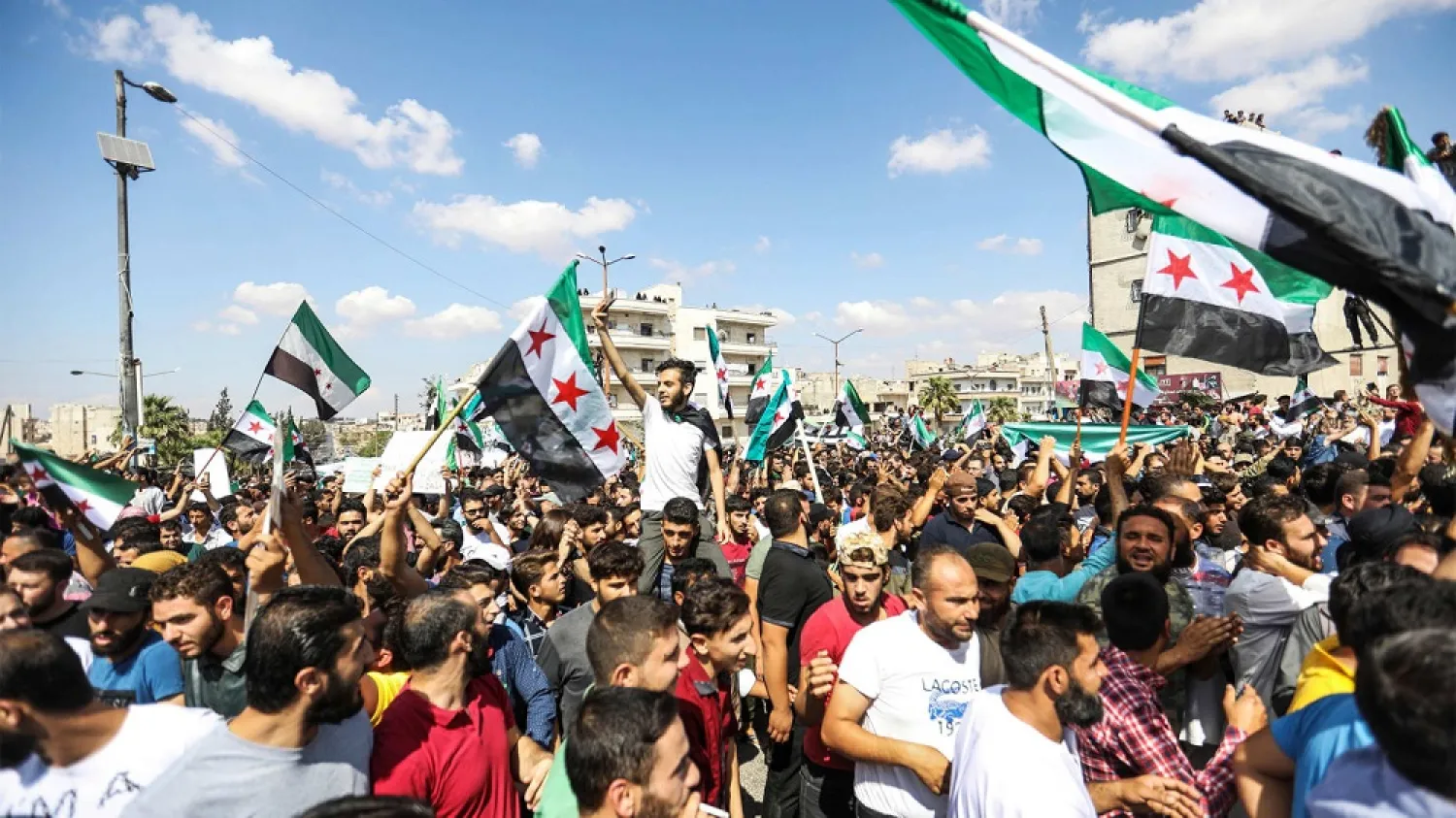Ankara and Moscow reached an agreement on Friday on the borders of the demilitarized zone to be set up in Syria’s Idlib region, announced the Turkish defense ministry.
The agreement was reached during meetings with a Russian committee held between September 19-21 at the ministry.
The agreed borders take into account Idlib’s geographical structure and residential areas, said the ministry.
Turkey’s President Recep Tayyip Erdogan and Russia’s Vladimir Putin announced an agreement on Monday under which Russian and Turkish troops will enforce the new demilitarized zone in Idlib, from which “radical” opposition factions will be required to withdraw by the middle of next month.
The deal averted a regime offensive on the last major opposition stronghold in the country and the demilitarized zone is expected to be set up by mid-October.
Ibrahim Kalin, Turkey's presidential spokesman, said Turkish armed forces and intelligence agencies were coordinating with their Russia counterparts to determine how to remove terror groups from the demilitarized zone, or "pacify" them.
He said all necessary steps would be taken to ensure no terror elements remain in the area or near Turkey's border be it "through persuasion, by pacifying, or other methods."
Kalin added that the goal is to protect civilians in Idlib as well as the moderate opposition to ensure they are part of the political process to resolve the Syrian crisis.
In Geneva, the Commission of Inquiry on Syria welcomed the Russia-Turkey deal, adding: "We strongly call for immediate and unhindered humanitarian access and provision of relief to the civilian population of Idlib."
In Idlib, residents took to the streets in anti-regime demonstrations across towns and villages held by the opposition.
In the town of Ariha, one of Idlib's largest, hundreds of people gathered in the main square carrying opposition flags and chanting: "The people want to overthrow the regime."
Similar demonstrations took part in the towns of Maaret al-Numan and Azaz, as well as the provincial capital, also named Idlib.
Separately, Turkey will soon conduct joint patrols with US forces in the strategic northern Syrian town of Manbij, a top Turkish official said on Friday.
The Manbij patrols are part of a "road map" that Ankara and Washington agreed on in June to defuse tensions amid Turkish demands for the withdrawal of the Kurdish People’s Protection Units (YPG).
Kalin said "joint training and joint patrols will begin very soon" in Manbij.
Manbij has been a major sticking point in the strained relations between Turkey and the US. Ankara considers the YPG, a terror group that is linked to a Kurdish insurgency within Turkey.
Kalin said continued US support for the Kurdish forces remains "a serious concern."









